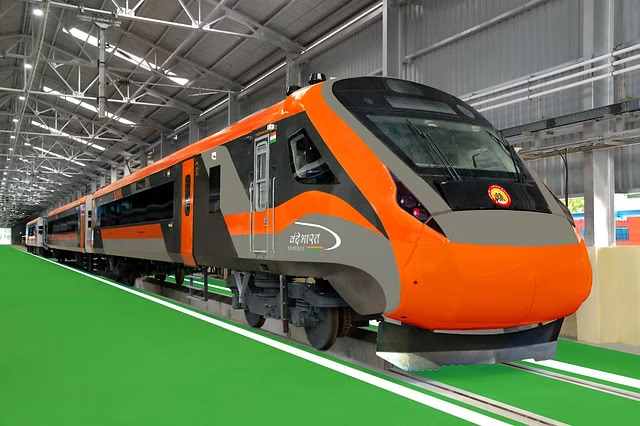
The Indian Railways has introduced its inaugural Vande Metro train, crafted with precision and innovation by the Integral Coach Factory (ICF) in Chennai. This landmark project sees Jindal Stainless, India’s premier stainless steel manufacturer, as a pivotal contributor, providing the cutting-edge tempered 201LN grade of high-strength stainless steel.
Compared to conventional ferritic stainless steel, the Vande Metro train’s external panels now boast a reduced thickness from 3 mm to 2 mm. This engineering feat translates into lighter, more energy-efficient, and ultimately more cost-effective trains, marking a paradigm shift in India’s railway infrastructure.
Abhyuday Jindal, Managing Director, Jindal Stainless, expressed his enthusiasm, stating, “We are glad to be a part of the modernisation of India’s railway infrastructure and rolling stock. It’s a privilege to play an instrumental role in Indian Railways’ decision to migrate from the ferritic grade to 201LN stainless steel for the first time ever. The light-weight and energy-efficient car body will reduce the carbon footprint of the Indian Railways and act as a catalyst to achieve its Net Zero target. I am confident that Vande Metro trains will provide a world-class experience to passengers and we are happy to partner with IR on this.”
The stainless steel 201LN grade offers exceptional corrosion resistance, heightened strength, superior durability, and enhanced crash-resistant properties, ensuring paramount safety for passengers.
The Vande Metro, a shorter-distance iteration of the esteemed Vande Bharat Express, is slated to serve urban commuters traversing distances of up to 250 km. With plans to connect over 120 cities nationwide, the Vande Metro is set for its inaugural launch in July of this year. Initial routes are projected to include pivotal connections such as Chennai-Tirupati, Bhubaneswar-Balasore, Agra-Mathura, Delhi-Rewari, and Lucknow-Kanpur, promising a revolutionary leap in India’s urban commuting landscape.

